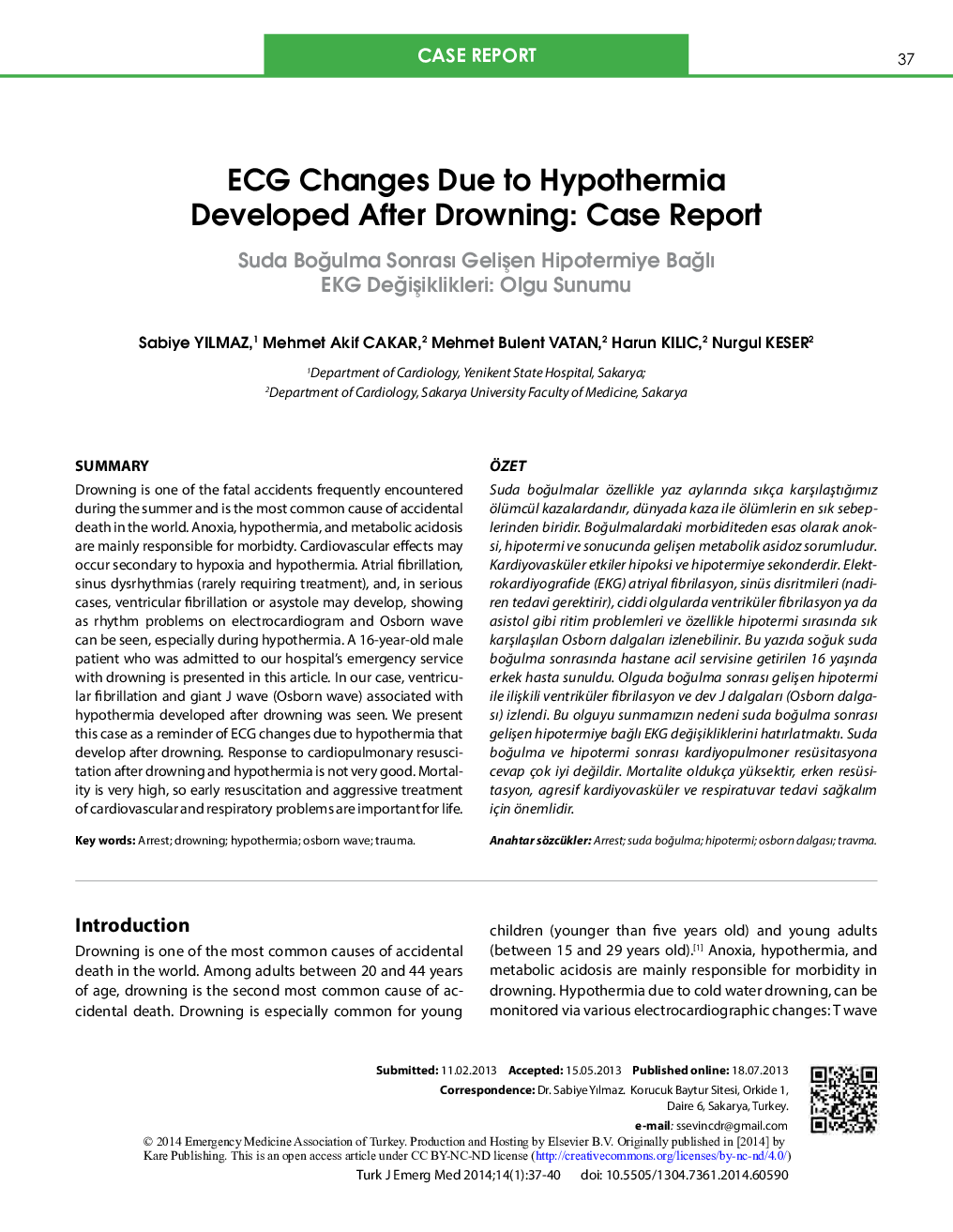| Article ID | Journal | Published Year | Pages | File Type |
|---|---|---|---|---|
| 2604189 | Turkish Journal of Emergency Medicine | 2014 | 4 Pages |
SUMMARYDrowning is one of the fatal accidents frequently encountered during the summer and is the most common cause of accidental death in the world. Anoxia, hypothermia, and metabolic acidosis are mainly responsible for morbidty. Cardiovascular effects may occur secondary to hypoxia and hypothermia. Atrial fibrillation, sinus dysrhythmias (rarely requiring treatment), and, in serious cases, ventricular fibrillation or asystole may develop, showing as rhythm problems on electrocardiogram and Osborn wave can be seen, especially during hypothermia. A 16-year-old male patient who was admitted to our hospital's emergency service with drowning is presented in this article. In our case, ventricular fibrillation and giant J wave (Osborn wave) associated with hypothermia developed after drowning was seen. We present this case as a reminder of ECG changes due to hypothermia that develop after drowning. Response to cardiopulmonary resuscitation after drowning and hypothermia is not very good. Mortality is very high, so early resuscitation and aggressive treatment of cardiovascular and respiratory problems are important for life.
ÖZETSuda boğulmalar özellikle yaz aylarında sıkça karşılaştığımız ölümcül kazalardandır, dünyada kaza ile ölümlerin en sık sebeplerinden biridir. Boğulmalardaki morbiditeden esas olarak anoksi, hipotermi ve sonucunda gelişen metabolik asidoz sorumludur. Kardiyovasküler etkiler hipoksi ve hipotermiye sekonderdir. Elektrokardiyografide (EKG) atriyal fibrilasyon, sinüs disritmileri (nadiren tedavi gerektirir), ciddi olgularda ventriküler fibrilasyon ya da asistol gibi ritim problemleri ve özellikle hipotermi sırasında sık karşılaşılan Osborn dalgaları izlenebilinir. Bu yazıda soğuk suda boğulma sonrasında hastane acil servisine getirilen 16 yaşında erkek hasta sunuldu. Olguda boğulma sonrası gelişen hipotermi ile ilişkili ventriküler fibrilasyon ve dev J dalgaları (Osborn dalgası) izlendi. Bu olguyu sunmamızın nedeni suda boğulma sonrası gelişen hipotermiye bağlı EKG değişikliklerini hatırlatmaktı. Suda boğulma ve hipotermi sonrası kardiyopulmoner resüsitasyona cevap çok iyi değildir. Mortalite oldukça yüksektir, erken resüsitasyon, agresif kardiyovasküler ve respiratuvar tedavi sağkalım için önemlidir.
